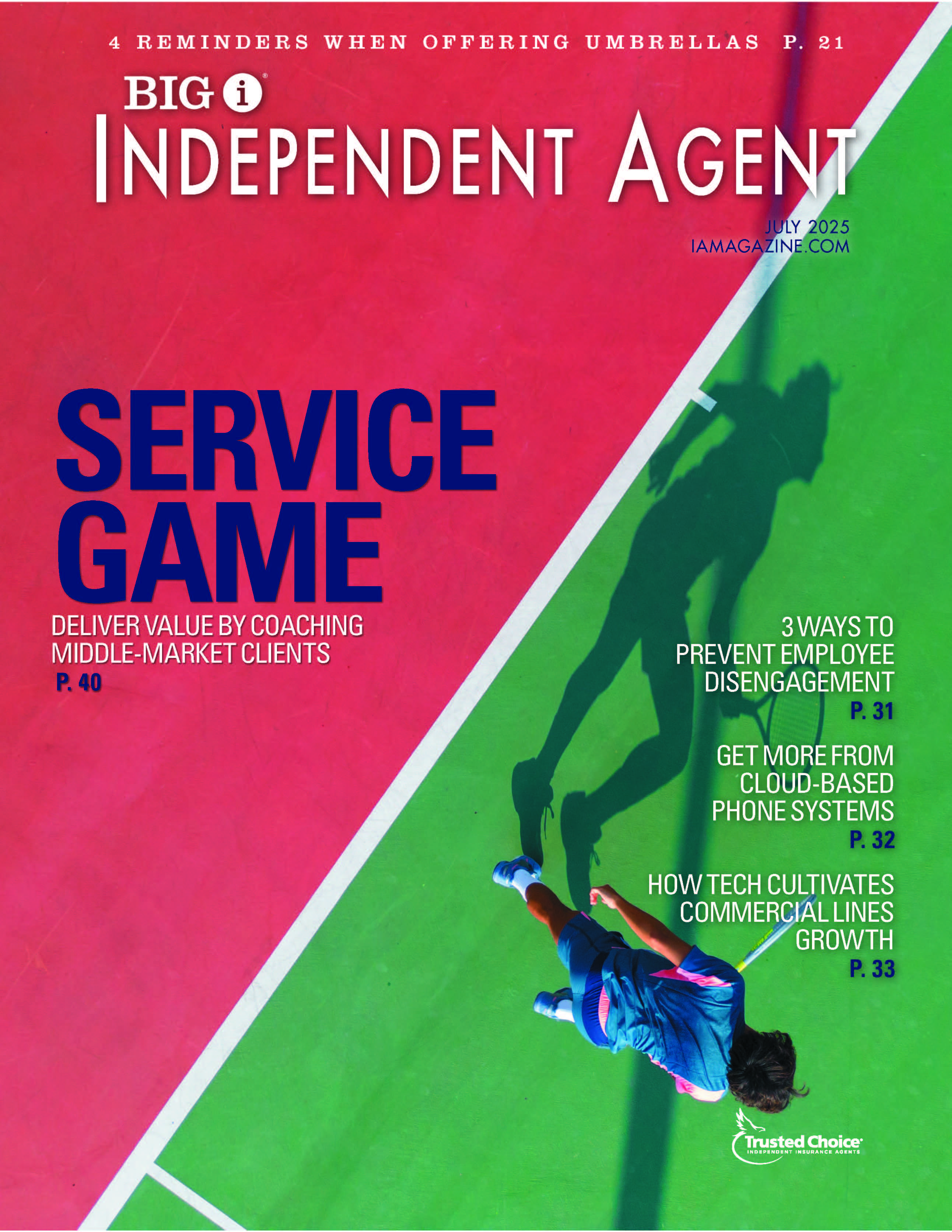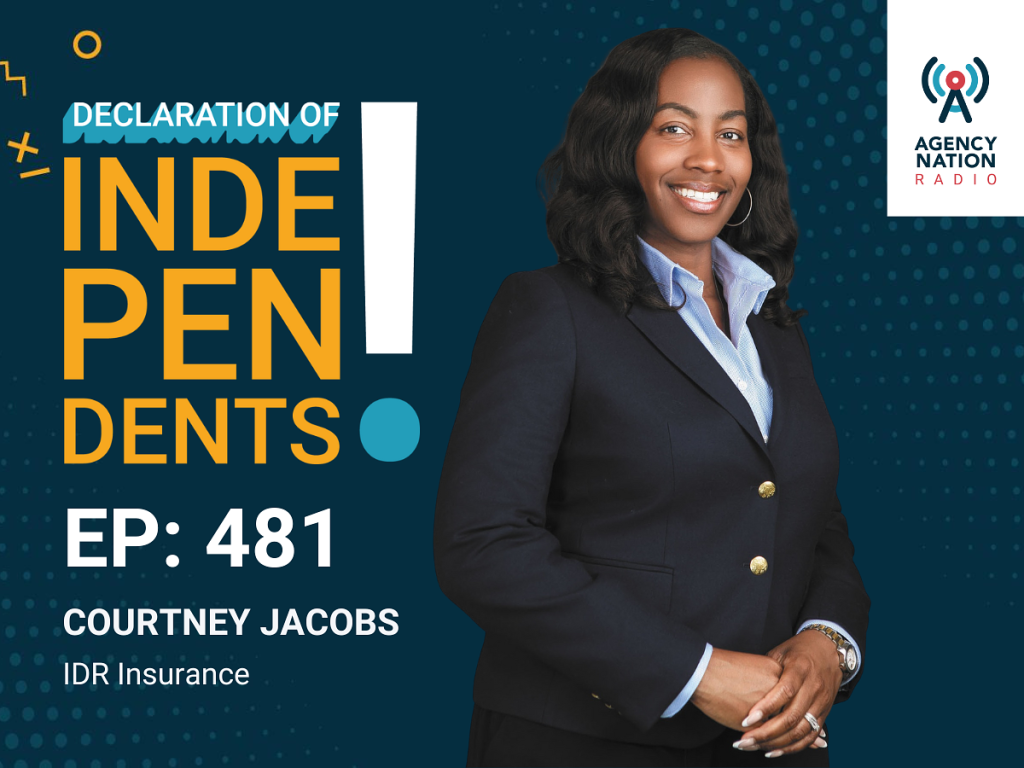3 Steps for Holding New Producers Accountable

By: Jacquelyn Connelly
Third-generation independent agent Ed Gillman once took a chance on hiring a new producer who didn’t have any insurance experience.
The “experiment” lasted 10 months, he says—and he’ll never do it again.
“We trained him and paid a draw to keep him alive, but it never materialized. He probably validated once out of 10 months, and most of his new business was accounts I threw at him,” says Gillman, lead problem solver, Gillman Insurance Problem Solvers in Alpharetta, Georgia. “It just didn’t go well.”
It’s not an unfamiliar story among independent agencies struggling to compete in an increasingly competitive talent pool. Whether you’re hiring a new producer straight out of college or one with years of industry experience, how can you make sure your investment pays off?
Here are three steps that can help you hold every new producer accountable for helping your business thrive:
1) Determine sales potential. This step should happen before even sending an offer letter. Accurately evaluating a prospective new producer’s sales potential requires three seemingly simple steps: “Test every producer. Test every producer. Those are the first two priorities, and the third one is to test every producer,” says Al Diamond, president of Agency Consulting Group, Inc., who notes that at least half a dozen tests are available to test the personality of a new recruit and figure out ahead of time whether they “actually have the impetus to pursue this career the way you expect them to.”
“We’re big believers in testing as a data point,” agrees Brian McNeely, partner at Reagan Consulting. “It’s really gathering as many data points as you can related to their background, their history, what they’ve done up to this point in their life—oftentimes, the more data points you can gather, the better you can correlate that to what’s required for success.”
Diamond encourages agents to interview new producers not only one on one, but with key personnel currently employed in service positions at the agency, “because a lot of producers are good insurance people but fall down on the human relationship aspect. That’s not something you want to find out 90 days later.”
Gillman relies heavily on his carrier partners to help him with the recruitment process. “I have a couple of really good reps, and they know a good producer from a bad one,” he explains. Isn’t that subjective? Sure, but it doesn’t have to be for your specific agency. Figure out what’s most important to your business in a new producer, and then target for those qualities in interviews and testing.
Gillman, for example, focuses on how a potential new hire goes about prospecting: “I’m not a cold-call guy. I hate it, I don’t want anybody doing it. I absolutely despise it when it gets done to me—that’s just not how you sell insurance anymore.”
2) Focus on activity over results. McNeely’s favorite statement regarding producer hiring and development is “Hire slow, fire fast.”
“That might sound harsh, but that ‘fire fast’ is driven by an immediate focus on activities,” McNeely explains. “If you know what activities have caused other salespeople to be successful within your agency, you can feel fairly confident that those activities will ultimately result in the results you’re looking for.”
A new producer should be evaluated based on their activities rather than their results for at least 18-36 months, Diamond agrees. “We can help a producer learn insurance, and we can even help someone learn sales, but there’s no way we can teach someone how to get out of bed in the morning and go do the right things,” he explains. “Otherwise you’re going to be acting like their mother, and that’s not the role of the insurance agent.”
Focusing on sales activity, Diamond says, will help you quickly determine—“normally within 30-60 days”—which producers “are going to make it and which aren’t,” he says. “It doesn’t mean they will have sold a lot of business, but you can see from their activity whether or not they’re going to be successful.”
In addition to sending seasoned salespeople out with the new producer to act as their “silent partner” and step in to educate and guide when necessary, Diamond encourages agents to call clients and prospects for feedback. “I don’t care whether the producer’s brand-new or has been in the business 10-15 years—everyone can use that kind of coaching and counseling,” he says. “That’s the difference between an amateur agency and a professional agency—how they treat their staff. Do they train them, do they actually manage them, or do they just hire them, give them a desk and say, ‘Go out and sell insurance’?”
Mentors are a crucial piece of the measurement process, McNeely agrees. “Are you working with a mentor effectively? Are you soaking up everything they’re telling you? That might be anything from cold calling to participating in phone calls to going on presentations to the customer service on the back end,” he says. “People so quickly get caught up in, ‘If you don’t have this size book by the end of the first year, you’re a failure.’ But someone’s activities may actually be pointing to something completely different.”
At Lakeside Insurance Center, LLC, an independent agency in Arvada, Colorado, Mike McCarron, president, says monitoring sales activity means asking, “What does your pipeline look like? How many people have you spoken with? How many people are you quoting?”
Tracking those numbers is “key, because producers can say, ‘I’ve been so busy,’ and then you look at the numbers and you can say, ‘OK, yep, it looks like you have been,’ or ‘It looks like you only had X meetings this month—what else were you doing?’” says Gillian McCarron, vice president.
“We have a lot of spreadsheets,” Mike McCarron adds. “Numbers don’t lie. If their activity isn’t looking like it’s adding up to a goal, then we’re going to have stronger discussions. It’s about listening and understanding what’s wrong, what’s different—why isn’t this what we’ve seen in the past? The longer the arc of numbers you have from year to year, the easier it is to manage by the numbers. You can’t validate off of two months, but once you get two or three years’ worth of data, it’s easy to see outliers.”
3) Communicate expectations clearly. Put simply, “uncertainty is the enemy of creating a successful producer,” Mike McCarron says. “Expectations have to be very clearly communicated. Every step of the way, you need to have them written down and signed off just so there’s no miscommunication. Even though you both have the same conversation, one party might take away something different than what you thought was talked about and agreed upon.”
“It’s a two-way street,” Gillian McCarron agrees. “They have to be involved and comfortable too. It’s not just telling them, ‘OK, here’s your structure.’”
Mike McCarron encourages flexibility in any sales plan. “It should be a living, breathing document,” he says. “You have to review it on an ongoing basis, so break the annual goals into monthly goals, break those into weekly goals, and then check back up quarterly. Are we on target? Are we not? Did we create unrealistic goal? What are the market conditions, what’s happening?”
Especially with regard to validation, “the higher your guaranteed compensation, the longer it’s going to take you to validate,” McNeely says. “But setting clear expectations of what is expected from an activities perspective and making sure everybody’s on the same page starting out is the biggest key upfront. Then, it’s easier to have a difficult conversation on the back end if the person doesn’t end up working out and you end up having to terminate them, because you can point to specific examples based on what was agreed upon initially.”
Bob Pettinicchi, executive vice president and chief lending officer at InsurBanc, a division of Connecticut Community Bank, N.A., says the agencies that enjoy the highest growth are those that have the highest expectations for their people—and high-growth agencies are worth more than low-growth agencies.
“An agency will go broke quickly if they overcompensate for inadequate production,” Pettinicchi says. “You have to keep raising the bar, because if you don’t, people will work to the bar. Agency principals are in business to create wealth and create opportunity, but an agency is not a charity. You can’t aspire to great things and just be happy with average.”
As Mike McCarron has “gotten a little older and wiser in the industry,” he says, he’s much quicker to “root out the failures. You have to understand that no matter what you do, you can’t make someone successful. Earlier in my career, I didn’t want to fail at making someone successful, so I held on for much too long. Now, I realize it’s more about personal responsibility. People have to step up.”
Jacquelyn Connelly is IA senior editor.









